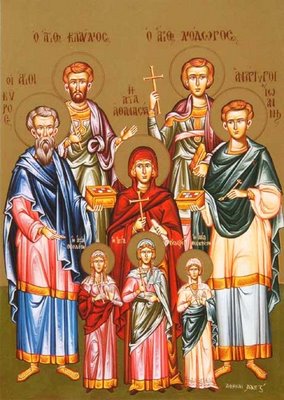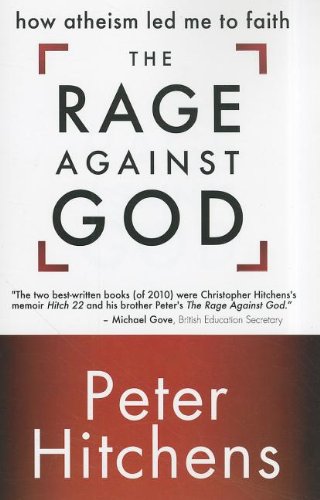|
|||
|---|---|---|---|
| This weekly bulletin insert complements the curriculum published by the Department of Christian Education of the Orthodox Church in America. This and many other Christian Education resources are available at http://dce.oca.org. | |||

Saints Cyrus and John belong to the group of saints known as "Unmercenaries" because they used their healing skills to help people and did not take payment. They were not blood brothers. Cyrus lived in Egypt and later became a monk in Arabia, while John was an officer of the Roman Army serving in what is now Turkey. John heard of the things Cyrus had done, not only curing people's physical ailments with his medical ability, but urging them to pray and to repent of their sins so that both their bodies and souls could be healed. John was intrigued, and traveled to Arabia to meet Cyrus. In the words of Bishop Nikolai Velimirovich, the two became "brothers in spirit." They served together as doctors and spiritual fathers to countless people. Both being outspoken Christians, they faced torture and martyrdom together, too, and were killed in the year 311. Christopher Hitchens, an outspoken opponent of Christianity and all religions, died of cancer. Hitchens was an articulate and well-educated man who appeared often on television and wrote for national magazines. He was one of two brothers—actual blood brothers—and the two men diverged very widely in their attitudes toward the Christian faith. Christopher wrote a book called "God is not Great" in which he argued that religion, and particularly Christianity, has had a harmful effect on the world. Peter Hitchens, his brother, is the author of "The Rage against God" in which he tells how "atheism led me to faith" and lays out the reasons why he strongly disagrees with his brother, and is a practicing Christian. In our society, such atheists as Christopher Hitchens and Richard Dawkins receive considerable media attention, and influence some people to question their faith. So Peter Hitchens' book is a helpful one, because he argues effectively against his brother's assertions, specifically in a section of the book entitled "Addressing the Three Failed Arguments of Atheism." 
He takes issue, for example, with Christopher's statement that "the order to 'love thy neighbor as thyself' is too extreme and too strenuous to be obeyed." Peter refutes this idea by offering examples of people risking their lives, health or safety for others. He acknowledges that living as a Christian is difficult, especially in a culture that places little value on selflessness, but insists that "we are far better for trying than for not trying." Peter Hitchens published his book before his brother died. Despite his profound disagreement with Christopher, he doesn't condemn him. Instead he hopes for his brother's conversion, or that at least he will discover that "belief in God is not a character fault." His compassion is an example of what is called for in I Peter 3:15: "Always be prepared to make a defense to anyone who calls you to account for the hope that is in you, yet do it with gentleness and reverence." |
|||
